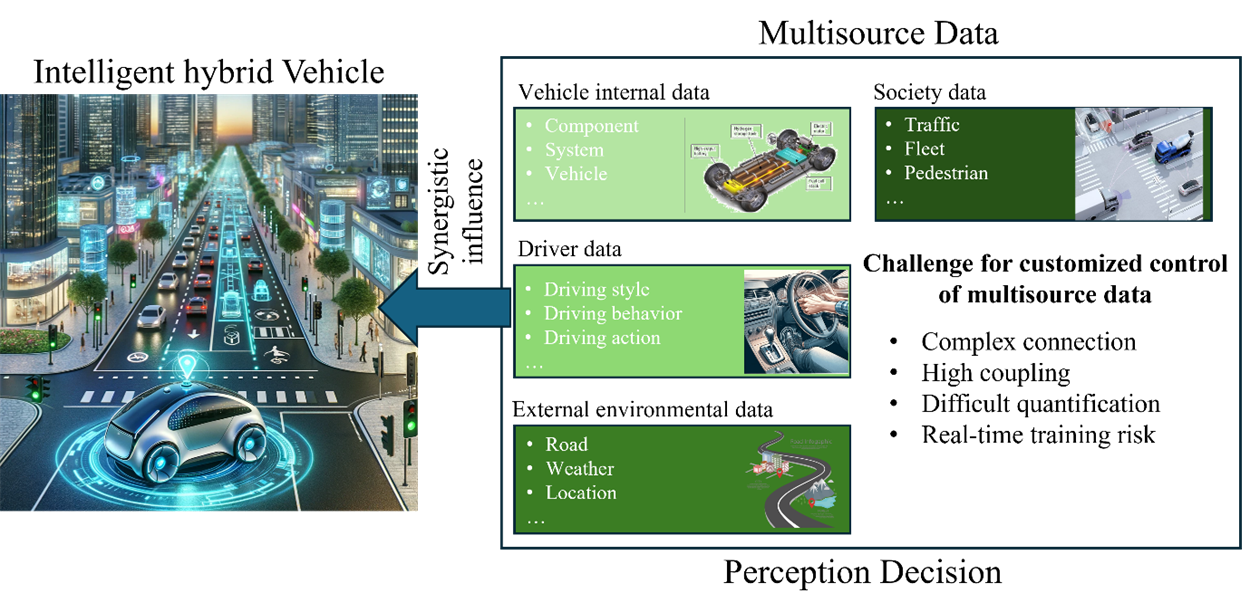CASE Automotive Research
CASE Automotive Research Group is at the forefront of the global transport revolution, focusing on Connected, Autonomous, Shared, and Electric vehicle technologies. These innovations are reshaping the future of transportation by making everyday journeys greener, safer, more reliable, and more flexible.
In 'CASE-V'
The CASE Automotive Research Group leads cutting-edge research to shape the future of sustainable and intelligent mobility. By integrating vehicle design, energy systems, and human-machine interaction with advanced traffic solutions, the group drives innovation for cleaner, safer, and smarter mobility systems. Its focus spans: 1) Smart Optimization & Control; 2) Energy & System Innovation; 3) Human-Centric Mobility; and 4) Cooperative Traffic Systems. Combining the multisource data, the research group aims to develop the efficient customized control strategy for the intelligent hybrid vehicle.
 Fig.1. Challenges of Multi-source Data to Intelligent Vehicle Control
Fig.1. Challenges of Multi-source Data to Intelligent Vehicle Control
Supported by rapid advancements in informatics, the group employs state-of-the-art technologies to fuse external dynamics—like driver behaviour and traffic conditions—into hybrid and electric vehicle optimization. The facilities include 12 independent testing cells with industrial-grade systems such as ETAS, AVL, NI, SIERRA, and Pi Innovo, with a registered fixed asset value of £2.2 million. is committed to driving a paradigm shift toward more sustainable and innovative mobility solutions. By bridging academic research with industrial applications, the group continues to lead advancements in CASE-V technologies and create a cleaner, more sustainable future for global transportation.




